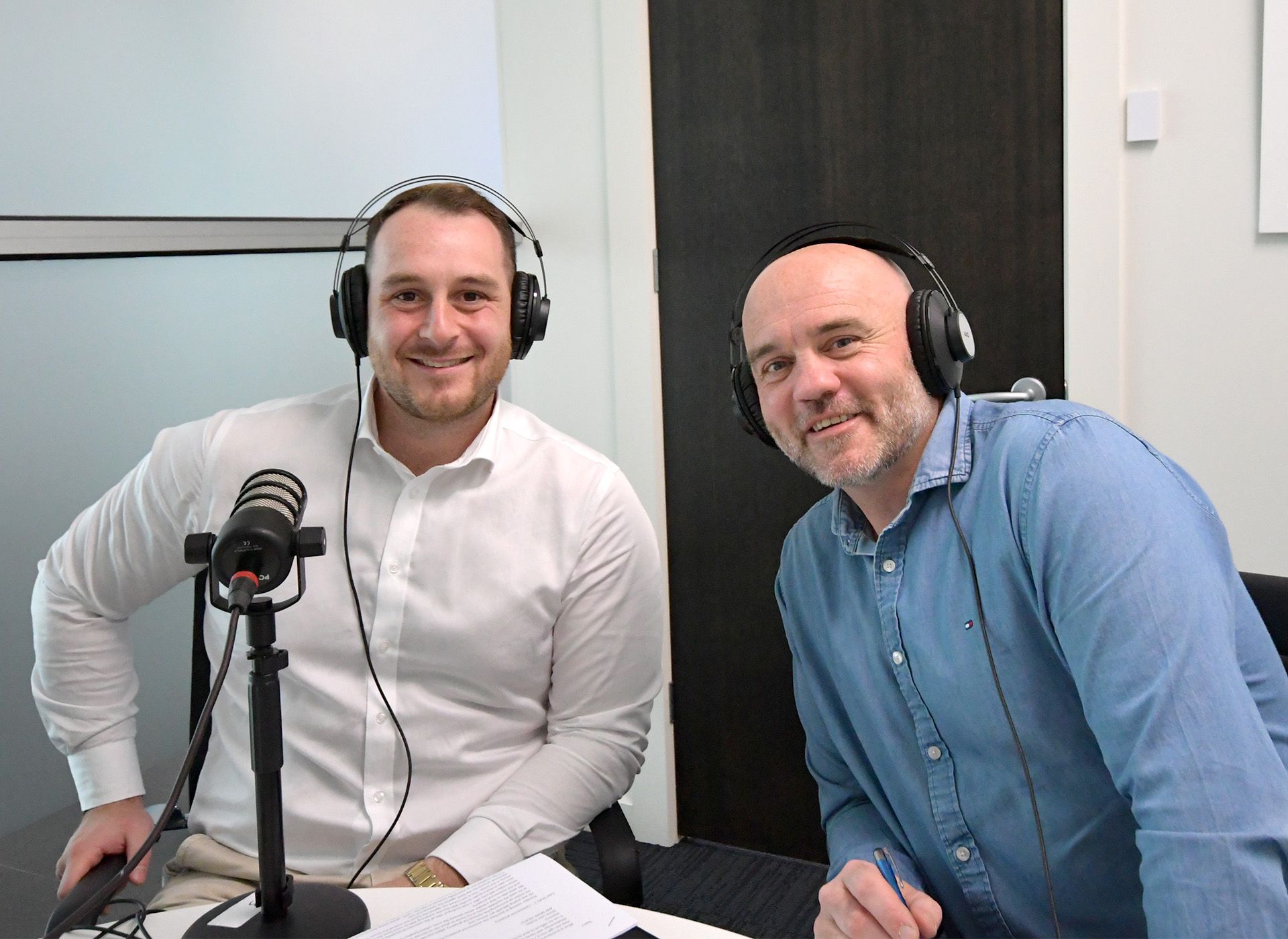Episode 59 of the FS360 Podcast - Commercial and Business Finance with Trent Dimitropoulos
Commercial and Business Finance discussion with Trent Dimitropoulos, Warren Freeman and Gavin Nash on the FS3560 Podcast.

Episode 59
Business and Commercial Lending with newly appointed Finance Broker Trent Dimitropoulos from COSIMFREE (part of the Mulcahy & Co Group) located at our Geelong office. Trent and Warren Freeman chat to us about some interesting case studies relating to loans for businesses, SMSFs and commercial property.
Also available on Spotify, Apple & Google Podcasts.
Read more about Business Finance here >>
Contact Trent Dimitropoulos via Email or phone below.
Summary of the podcast:
Mulcahy & Co Finance Broker Trent Dimitropoulos says not “one size fits all” when it comes to commercial finance, a concept he sat down to explain on the FS360 Podcast.
Joining host Gavin Nash and Director of Lending Warren Freeman, Dimitropoulos explained how commercial financial could benefit existing and new businesses or those looking for investment opportunities.
Where residential finance does not allow much flexibility, commercial finance gives clients the chance to tell their story to possible lenders.
“I think when it comes to the commercial space there’s no one size fits all scenario and there’s always judgemental opinions,” Dimitropoulos said.
“You might have a business that may be … cash flow poor … but if you tell the story and the wider picture to the bank, they might be more than happy to help out.
“If you’re a person looking to purchase a business or start up a business from scratch … give me a business plan, see how we can structure that and tell that story to the bank and say ‘this is how we’re going to be successful, this is what we need the money for and this is how we’re going to pay you back.”
This pertains to a range of different industries, such as agriculture. As someone who grew up on a farm, Dimitropoulos understands the highs and lows that can come with farm work.
This is where the team at Mulcahy & Co come in, as the team of experts can assist in telling your story and choosing the right lender to tell that story to.
“We might not have rain for a couple of years, you might have flooding … it can definitely show on your financials,” Dimitropoulos said.
“It’s about telling that story to the bank and for us, trying to get banks to support you in your end goals.”
Case study one – Commercial property outside self-managed super fund
A plumber came to Dimitropoulos looking to purchase a commercial property outside his self-managed super fund (SMSF).
He had been paying $5000 per month rent, however through buying a property, his repayments came down to $4200 per month.
“We actually allowed him to borrow 100% of the funds for that property purchase. It was around $600,000-$700,000,” Dimitropoulos said.
“What we did was use (his) residential property as top up security, so we were able to find a lender that was able to lend 80% against the commercial property.
“It protected the client’s cash flow in the end and helped support his business going forward.”
Case study two – Commercial property inside SMSF
A husband and wife who worked separate jobs had $400,000 in their SMSF and wanted Dimitropoulos’ help to diversify. They had a residential property in the past, however had a bad experience with tenants.
They went down the commercial property path, borrowing 80% of the purchase price inside their SMSF.
“They just bought an industrial shed essentially, four walls, less maintenance and all the outgoings were paid for in this instance too, (by the tenant)” Dimitropoulos said.
“They decided to purchase inside their SMSF … they had enough contributions going in to support the loan, the rent was paying the loan off anyway.”
Case study three – Borrowing for cash flow
A local retail business of over 20 years came to Dimitropoulos needing extra cash, as they had found themselves in a small hole and had the chance to bulk buy stock from overseas.
“They gave me a call and said ‘we need a couple million dollars … to purchase all this stock, we don’t have it here but we’re going to get it for you,” Dimitropoulos said.
“It’s just that conversation, I go back to that storytelling and that relationship with the banks and us and how we are facilitating that relationship with the banks.
“It helped purchase stock but it also helped pay wages for the business too … we were able to keep that company flowing through those hard times.”
Case study four – Starting a new business
A couple came to Dimitropoulos wanting to open a new clothing store. She had over 10 years’ experience in the industry with a major retailer.
They had a home loan of $600,000 and needed an additional $850,000 to start up the business. She had quit her job to run it, while her husband continued to work.
“Within that business space, it was more about telling the story with your cashflow forecast, business plan … including her experience,” Dimitropoulos said.
“Even something as simple as I got her resume to show the bank ‘this is her experience, she’s qualified, she knows the industry’.
“With that … we were able to use the income from the cash flow to support not only the business loan but the home loan itself.”
Latest News







